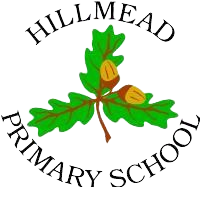Science

EYFS
Science in EYFS is covered predominantly in the 'Understanding the World' area of the EYFS Curriculum. Scientific learning and thinking is introduced through activities that encourage children to explore, problem solve, observe, predict, make decisions and talk about the world around them.
Key Stage 1
As the National Curriculum Document states,
'The principal focus of science teaching in key stage 1 is to enable pupils to experience and observe phenomena, looking more closely at the natural and humanly-constructed world around them. They should be encouraged to be curious and ask questions about what they notice. They should be helped to develop their understanding of scientific ideas by using different types of scientific enquiry to answer their own questions, including observing changes over a period of time, noticing patterns, grouping and classifying things, carrying out simple comparative tests, and finding things out using secondary sources of information.'
Lower Key Stage 2
As the National Curriculum Document states,
'The principal focus of science teaching in lower key stage 2 is to enable pupils to broaden their scientific view of the world around them. They should do this through exploring, talking about, testing and developing ideas about everyday phenomena and the relationships between living things and familiar environments, and by beginning to develop their ideas about functions, relationships and interactions. They should ask their own questions about what they observe and make some decisions about which types of scientific enquiry are likely to be the best ways of answering them, including observing changes over time, noticing patterns, grouping and classifying things, carrying out simple comparative and fair tests and finding things out using secondary sources of information.'
Upper Key Stage 2
As the National Curriculum Document states,
'The principal focus of science teaching in upper key stage 2 is to enable pupils to develop a deeper understanding of a wide range of scientific ideas. They should do this through exploring and talking about their ideas; asking their own questions about scientific phenomena; and analysing functions, relationships and interactions more systematically. At upper key stage 2, they should encounter more abstract ideas and begin to recognise how these ideas help them to understand and predict how the world operates. They should also begin to recognise that scientific ideas change and develop over time. They should select the most appropriate ways to answer science questions using different types of scientific enquiry, including observing changes over different periods of time, noticing patterns, grouping and classifying things, carrying out comparative and fair tests and finding things out using a wide range of secondary sources of information.'
Science content that is taught throughout the year in each year group:
|
|
Autumn Term |
Spring Term |
Summer Term |
|||
|
Year 1 |
My Body |
Identifying Animals |
Seasonal Changes |
Everyday Materials |
Identifying Plants |
Scientists & Inventors |
|
Year 2 |
Growth & Survival |
Living in Habitats |
Exploring Everyday Materials |
Growing Plants |
The Environment |
Super Scientists |
|
Year 3 |
Health & Movement |
Light and Shadow |
Forces & Magnets |
Rocks, Fossils and Soils |
How Plants Grow |
Scientists & Inventors |
|
Year 4 |
Eating & Digestion |
Living in Environments |
Circuits & Conductors |
Changing Sound |
States Of Matter |
Scientists & Inventors |
|
Year 5 |
Life Cycles |
Earth & Space |
Forces in Action |
Properties & Changes of Materials |
Scientists & Inventors |
Changes & Reproduction |
|
Year 6 |
Healthy Bodies |
Classifying Organisms |
Seeing Light |
Changing Circuits |
Evolution & Inheritance |
Scientists & Inventors |
